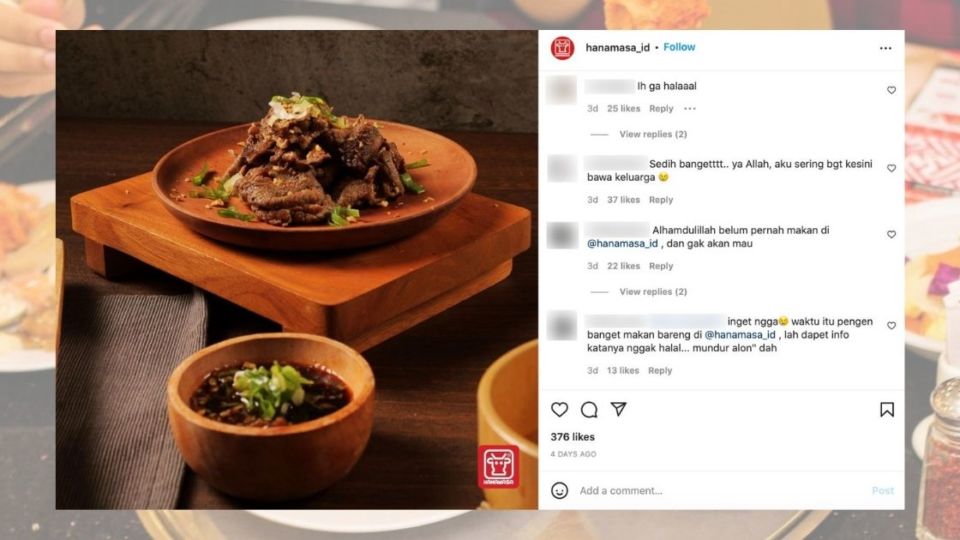The year 2022 might have just begun, but already the figurative grill has cooked up a religious controversy surrounding popular Japanese all-you-can-eat chain Hanamasa.
Last week, an Instagram user shared about her experience dining at a Hanamasa restaurant in East Jakarta with her husband, saying that she only discovered that the chain incorporated sake in their food, a suspicion she had due to the “strong fermented taste” of a mushroom dish she tried. She then went online to look up whether or not Hanamasa has obtained halal certification from the Indonesian Ulema Council (MUI), only to find that it hasn’t.
Wah, barutau kalo Hanamasa itu nggak halal. Untuk temen2 muslim silakan dibaca dan hati2 aja ya dalam memilih makanan. SS dr akun @anggiyusriani. pic.twitter.com/XP2Je6aXCp
— Titiw (@TitiwAkmar) December 31, 2021
After speaking with the chef, she discovered that said mushroom dish and accompanying soy sauce contained sake or mirin, a subtly sweet Japanese rice wine that’s commonly used in dishes from the Land of the Rising Sun.
The user highlighted that the chef spoke faintly about the alcoholic ingredients as a Muslim family was seated withun earshot. She also said she went as far as approaching every hijab-wearing customer to warn about the alleged non-halal dishes.
It’s worth noting that alcoholic drinks, including sake and mirin, evaporate in high heat, and that halal versions of mirin can be easily found on Indonesian online marketplaces these days.
Netizens had mixed reactions for the Instagram post, with many demanding that Hanamasa clearly state their lack of halal certification — especially because this very topic had become controversial numerous times in the past — while others think that every customer should take personal religious responsibility for what they eat.
While MUI has not released an official statement about the controversy, it has clarified on social media that Hanamasa is, indeed, not halal-certified. The list of halal-certified restaurants can be found on MUI’s website.




